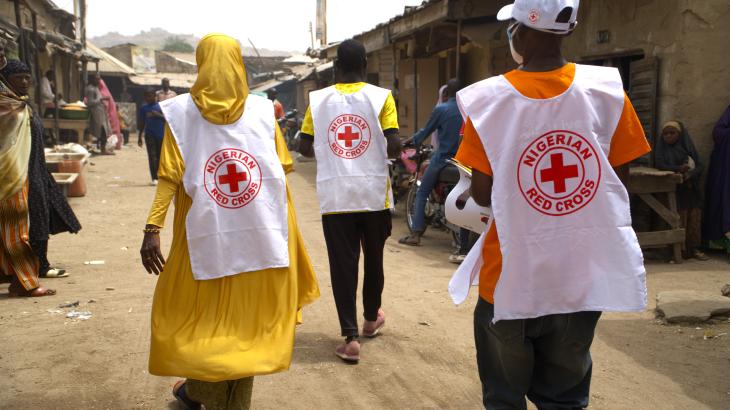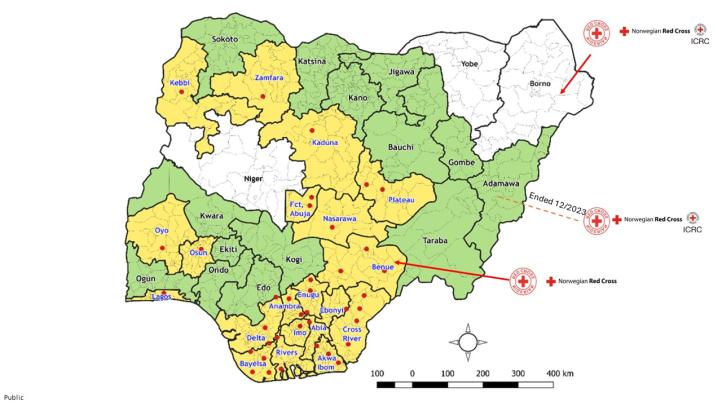Dates of implementation: 2021- present
Setting: Rural / IDP Camps
CBS context: Preparedness
Data collection system: Nyss Platform
Support: Norwegian Red Cross
As the protracted conflict between the Government of Nigeria (GoN) and Non-State Armed Groups (NSAGs) in North-East Nigeria persists into its 14th year, the population of Borno, Adamawa, and Yobe States—collectively referred to as the BAY states—continues to face insecurity and sustained military operations. This ongoing strife has precipitated a dire humanitarian crisis, exacting a heavy toll on the lives of the most vulnerable segments of society.
According to the Humanitarian Needs Overview (Relief Web 2024), over 2 million people fled their homes in preceding years due to persistent violence, with many remaining displaced throughout 2023. An alarming 7.9 million people are in dire need of humanitarian assistance across the region.
The primary drivers fuelling humanitarian needs in Nigeria in 2024 encompass a spectrum of challenges, including conflict-induced displacement, food insecurity, malnutrition, disease outbreaks, flooding, and the forced closure and relocation of camps. The protracted conflict has severely strained already inadequate public infrastructure in the BAY states, impeding access to essential services such as disease surveillance crucial for early detection and response to outbreaks. Notably, Nigeria grappled with one of its most severe cholera outbreaks in 2021, affecting all states as well as one of the most severe diphtheria outbreaks in recent years in 2023. Additionally, past outbreaks of polio, Lassa fever, measles, yellow fever, and Mpox underscore the persistent threat of epidemic diseases in the region.
In response to these pressing challenges, the Nigerian Red Cross Society (NRCS), in collaboration with the Norwegian Red Cross, launched a Community Health Programme in 2021, encompassing Community-Based Surveillance (CBS), targeting conflict-affected states like Adamawa, Borno, and Benue. This program incorporates an early warning system utilizing the Nyss platform, seamlessly integrated into existing surveillance frameworks established by health authorities. It constitutes a vital component of broader efforts aimed at curbing community transmission of diseases across Nigeria.
NRCS remains committed to expanding CBS initiatives into additional Local Government Areas (LGAs) and integrating them with various health programs across different states, thereby strengthening the health system to detect, prevent, and respond to health emergencies effectively.
- Acute watery diarrhoea
- Fever and rash
- Fever with yellow eyes
- Fever and neck stiffness
- Fever and painful throat
- Acute flaccid paralysis
- Unusual Event


